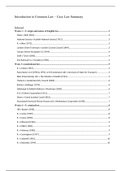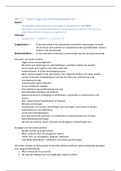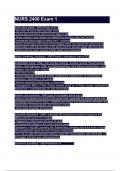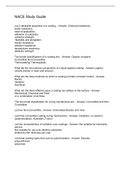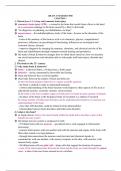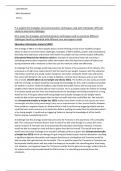Arresten
Introduction to Common Law - Case Law Summary
This document contains a summary of all case law you should know from the first five lecture weeks of the course Introduction to Common Law (Rijksuniversiteit Groningen, 2019/2020), with facts and ratio decidendi provided (facts only when relevant). Using this case law summary - in combination with...
[Meer zien]
